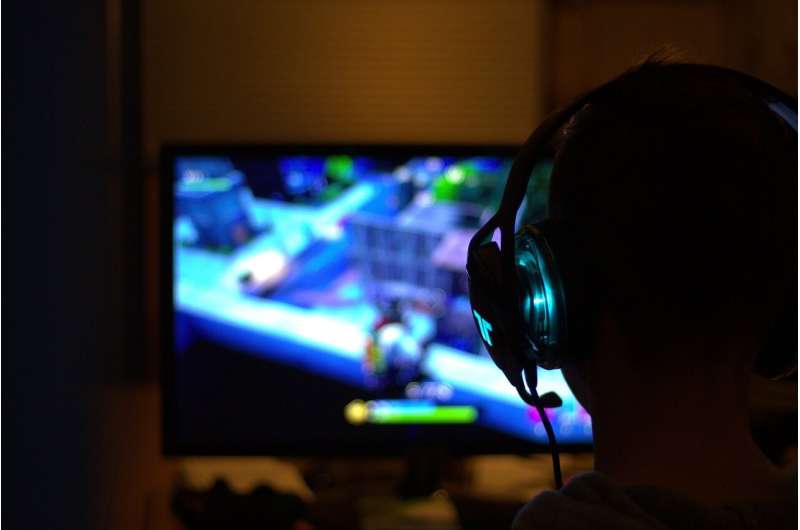February 17, 2021 report
Volunteers in video game study self-report positive well-being

A team of researchers at the University of Oxford working with two video game makers has found that volunteers who play video games self-report a positive feeling of wellbeing. In their paper published in the journal Royal Society Open Science, the group describes experiments they conducted with volunteer game players and what they learned from them.
As the researchers note, public and social media claims have suggested that people who spend more time playing video games are putting themselves at risk of developing addiction, resulting in poor mental health. In this new effort, they sought to find out if that is truly the case.
The experiments involved working with video game makers Electronic Arts and Nintendo to obtain online game playing statistics. They then surveyed players of two popular games: Animal Crossing: New Horizons and Plants vs. Zombies: Battle for Neighborville. The surveys queried over 3,000 players on their wellbeing, their motivations and need satisfaction as they played their video games. Each of the volunteers was monitored by a game maker as they played as a way to measure play time.
After collecting and analyzing their data, the researchers found a small but positive correlation between game playing and wellbeing—players reported more positive responses than expected.
The researchers note that the game makers were not involved in their study other than to provide anonymized telemetry data. Also, they note that they are not suggesting that there is a causal relationship between subjective wellbeing and how much time a person plays video games. They suggest instead that playing video games does not appear to be negatively impacting the wellbeing of players.
They also note that video game players and their critics might want to shift their focus from the duration of game playing to looking at the reasons a person is playing in the first place. They further note that need satisfaction did not appear to play a role in motivation for the player volunteers—instead, they appeared to be related to wellbeing in different ways. The researchers conclude that those in charge of monitoring play time for others (such as parents) might want to consider the needs that are being met by the game instead of making it all about how much time they are playing.
More information: Niklas Johannes et al. Video game play is positively correlated with well-being, Royal Society Open Science (2021). DOI: 10.1098/rsos.202049
© 2021 Science X Network





















